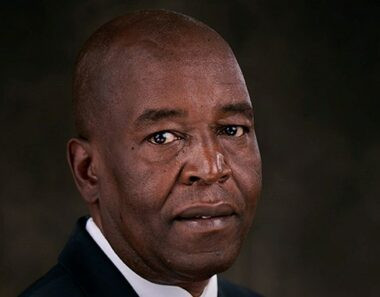
THE Confederation of Zimbabwe Industries (CZI) has roped in three developmental financiers and six private equity firms to participate at its annual congress later this month.
During last year’s annual congress, CZI members raised about US$10 million in equity funding under a similar arrangement.
Sekai Kuvarika, the CZI chief executive officer, said the idea was to allow companies at the congress to directly interact with investors.
Kuvarika said business was being affected by a liquidity squeeze, as the authorities try to control inflation.
“Last year, US$10 million was raised in both equity and business. People managed to attract equity investors. What we aim to do is to create a platform for facilitating B2B (business to business) interactions,” she said.
“These exhibitors are then able to interact with potential investors or with potential customers on site.
“We are hoping that the businesses that we invite will also catch the attention of financiers and other investors. We are also having some of the investors exhibiting at the conference as well.”
The liquidity squeeze has seen companies fail to secure funding from local financial institutions.
- Mthuli Ncube abandons struggling consumers
- Fears of jobs carnage as crisis deepens
- Fresh warning over bank rate hikes
- In Conversation with Trevor: ‘Zim must invest in human capital’
Keep Reading
This is after government escalated efforts to control money supply, which has been the main driver of currency volatility.
“I would say we have impact investment or development financial institutions, about three or four of them. We do have about six other private equity capital companies. Two are foreign and the rest are local,” Kuvarika said.
She said the congress will be held from October 25 to 27.
The need for more investment comes as the manufacturing sector, which is represented by the CZI, is in dire need of foreign currency to retool and recapitalise operations.
Further, since the chaotic general elections held in August received adverse preliminary reports from local, regional and international observer missions, the country’s international risk profile has worsened.
However, Kuvarika said despite this, business was still showing signs of resilience.
“Interestingly, we have actually had calls from international funders wanting to fund projects inside the country. Hence, we have these people coming because they are actually looking into the market wanting to identify businesses that they can deploy some equity into. That is our reality,” she said.
“And of course, that Risk Reward Index is its own reality, I am sure it is looking at certain factors that they look at and measure and are able to come up with those rankings.
“Has business stopped in Zimbabwe? No. Have people stopped investing? I don’t think so. But are things difficult for business? Yes,” Kuvarika said, commenting on reports that have labelled Zimbabwe a high risk profile.
In the Africa Risk-Reward Index 2023, Zimbabwe scored the lowest in terms of rewards, and the worst relating to risks on the continent.
The index is prepared by the South African economic risk consultancy, Oxford Economics Africa, and the United Kingdom-based global risk agency, Control Risks.
Kuvarika could not reveal the uptake of a US$300 million facility launched at CZI’s 2022 congress to help local manufacturing firms access financial support for their imports and capital expenditure.
The facility was supported by the South African-based financial services firm, Loita Capital Partners.
Last year, the manufacturing sector’s capacity remained stagnant at 56,1%, owing to power outages, forex shortages and the hawkish monetary policies being pursued by the central bank.
Investment into the sector dropped by 31% to US$101 million during the period.
Forex shortages and power outages, on top of liquidity constraints, remain challenges to the sector.
CZI president Kurai Matsheza said businesses must make use of the African Continental Free Trade Area (AfCFTA) to expand their markets.

“The AfCFTA race shall be won by those who are swift and bold in taking decisions that make their countries the best place to do business on the continent,” he said.
“These winners will provide the bulk of the products and services to be traded on the continent.
“Start-ups, entrepreneurship, SME development and corporate entrepreneurship will need to be deliberately driven and enabled by policy and institutions.
“The growth in the primary sectors of mining and agriculture is commendable and provides an opportunity for shifting policy towards increased sophistication. One of the opportunities lies in industrial policy for agri-food system,” Matsheza added.
He said industrialising primary sectors would deliver AfCFTA opportunities for Zimbabwe.
This, Matsheza said, was going to require an aggressive entrepreneurship and competitiveness drive.
However, he added that sustained macro-economic stability would deliver broad-based and sustained economic growth.











